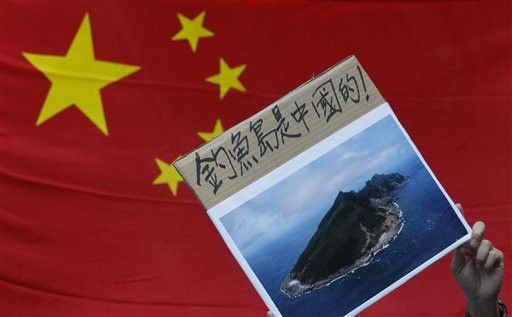China's New Passports Spark More ASEAN Tensions

China's new passports have sparked controversy among several Asian countries because of watermarks that include 90 percent of the South China Sea and other disputed South East Asian areas that are featured in the passport's pages.
Coming out of the ASEAN summit talks, which proved to be uneventful in solving China's rising tensions with other Asian nations over territorial disputes, the passports have not been well received.
Though these new passports have been issued since May 15, protests over the watermark images, incuding Taiwan and the disputed Spratlys and Paracels islands, did not arise until recently.
The Diplomat, a political blog for the Asia-Pacific region, reported that many nations have made formal complaints against Beijing.
"So far, the reactions to the new passport have been uniformly negative, with Hanoi and Manila issuing official protests," the report said.
The Vietnamese Foreign Ministry requested that China remove the "wrong" information from the passport. Xinhua news agency reported that Hanoi is going as far as refusing to stamp visa pages in the new passport when Chinese visitors arrive in Vietnam, and instead stamp a separate piece of paper, avoiding any misconception of Vietnam endorsing the disputed territory lines.
Philippine Foreign Secretary Albert del Rosario was quoted in the Los Angeles Times saying that the image included areas that are "clearly part of the Philippines' territory and maritime domain."
The Diplomat also reported that India responded to China's map with one of their own. India issued visas to Chinese passport holders with a different map that clearly showed two disputed areas of Arunachal Pradesh and Aksai Chin in Kashmir as part of India's territory, both of which were featured in the Chinese passport.
Xinhua has published reports that seem to mimic Beijing's view of China's greater territorial aspirations.
"The map lays clear claim of China to the maritime sovereignty in the South China Seas. But Vietnam is refusing to accept this," Xinhua reported.
Xinhua quoted Chinese citizens in the report who reflected the same ideas as their government.
One university student felt the watermark maps were accurate.
"It should be printed on here, because this was originally China's. The islands originally were ours. It's just like Diaoyu Islands -- we should take back what's ours," the student told Xinhua.
However, the highly controversial Diaoyu Islands, or Senkaku Islands to the Japanese, which have been at the center of increased strain on Sino-Japanese relations, was not included in the passport.
China's Foreign Ministry reiterated China's unwavering diplomatic stance on the disputed areas.
"China's standard electronic passports are issued according to international civil aviation standards. China is not targeting a specific country. China is willing to communicate with relevant countries, and continue promoting contact and healthy development with foreign personnel," Hua Chunying, spokesperson for the Foreign Ministry, said.
The controversy may, however, dissuade some Chinese from travelling overseas.
Chen Chuilang, a Beijing resident, told Xinhua he is willing to change his travel plans amid all the disputes.
"If the controversies continue to snowball, I certainly won't choose to go to these countries."
© Copyright IBTimes 2025. All rights reserved.






















